Best Books for the stock market You should read Before Investing
Here we have shared one of the best Books for investing You should read it before investing in the stock market

People who are unfamiliar with the stock market game may find it very confusing. However, you need not worry because there are a lot of helpful books available to you, but there are only a select few of them that will help you improve your trading skills by arming you with sufficient knowledge. Here in this article let's talk about the best books for the stock market.
The stock market books that you, as a beginner, can take into consideration were written by the best minds in this industry and are simple to understand. Here are the best books you can look at that will not only be easy to understand but will also provide you with valuable information to improve your trading.
Jack Bogle's The Little Book of Common Sense Investing
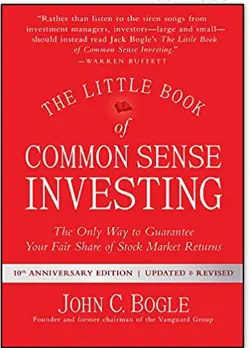
One of the best trading books for beginners is this one. Jack Bogle, the man responsible for starting the Vanguard organization, wrote the book.
Bogle's message to the readers of this book is straightforward: he advises them to start trading by keeping costs low and making long-term investments. A publication that will draw risk-averse traders and investors.
The book discusses proactive measures you can take to limit your losses. Additionally, this is the best book to read if you want to start trading but are a little hesitant about the stock market. Remember to read this book first before playing the stock market game.
This stock market best seller offers sensible and doable ways to make money and become an expert in the game of stock market trading.
The Intelligent Investor: The definitive book on value investing. A Book of practical counsel by Benjamin Graham and Jason Zweig
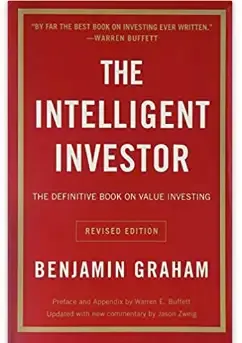
The best investor of the 20th century advised that no one will ever want to contest. Benjamin Graham imparted timeless investment wisdom in his book that no one can ignore. Benjamin Graham, the greatest investor of the 20th century, adhered to maximising gains while minimizing losses. Many investors should adopt this strategy, even though it may seem odd to some. Probably because of the worldly situations and
Long-term investors who use their research, analysis, and years of experience and discipline to make wise investment decisions can find success with Graham's philosophy.e
Grab this book right away if you want to excel in the field of stock marketing; it is like the Bible for anyone involved in the stock market. However, if you are a layperson without any stock market knowledge, this book might put you to sleep. Before choosing this book by Graham on the stock market, be sure to read about the fundamentals of the stock market.
When To Sell: Inside Strategies for Stock-Market Profits by Justin Mamis
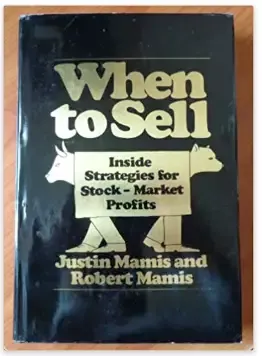
The title of this book alone indicates a key concept in the stock market: selling. What is the best time to sell your stocks is addressed in the book. Being written two decades ago, it is still very relevant.
Author Justin Mamis, who worked for Phelan, Silver, and NYSE specialist firms for several years as an upstairs member trader, is the best mentor for investors unfamiliar with the stock market. In this book, the author discusses market indicators about the best times to buy and sell stocks and explains the trade secrets of bonds, options, etc.
The author has considered even the smallest details and explained the best ways an individual can sell stocks and get the maximum profit. The author also explains the time and method by which a person should sell his stocks to ensure that he doesn't make a big loss that leads to a big hole in his pocket.
The author emphasizes that the stock market is the ideal setting in which a person can experience a variety of human emotions because it offers the thrill of making money and the possibility of losing it all.
If you're considering investing in stocks, keep this book close at hand. The author has skillfully conveyed his knowledge and experience in this book, enabling you to become a master of the stock market.
Paul Mladjenovic's book Stock Investing for Dummies
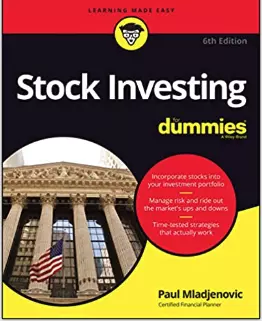
Because a newcomer will undoubtedly feel lost in this world of finance and the stock market, it is important to educate them on the fundamentals so that they can build a solid foundation for the rich buffet that the stock market has to offer.
There is no better book on the market than "Stock Investing for Dummies," which also includes new rules, exchanges, vehicles, investments, and other information that will help you stay in this field of the stock market and master it. The book starts with a basic understanding of ETFs, a very safe way to be more diversified and good at the game.
This book is a great help for beginners to not get lost in this huge business world and encourages you to invest in the stock market in the best way and grow stocks with a clear investment plan. The stock market is a vast field, and this book explains how technological changes bring new services, new products, and new ways to do business to the market.
In this book, the reader is given information on how to locate a stockbroker to choose ETFs or mutual funds, as well as a thorough explanation of the fundamentals of the stock market.
Instead of wasting money and time on tutorials, beginners should think about using this book for the basics. The author has also provided details about published resources and websites to gather enough information about a company and then decide whether to invest in the company's stocks or not.
Jack D. Schwager's paperback book Market Wizards, Updated: Interviews with Top Traders
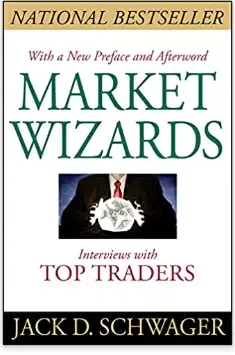
Trade secrets are very important if you want to stay and make it big in the stock market. If you get these trade secrets from the great wizards of this market, then nothing can stop you from being successful in this market.
The author has not censored the words of these traders and has shared their advice directly with the readers so that they may use it to shape a better and brighter future directly. In this book, Schwager explains the fundamental formula that has assisted the top traders in accumulating significant wealth from the stock market.
The sensational trading coups of the great traders Tudor Jones, Tom Baldwin, Marty Schwartz, Michel Steinhardt, and others have been very well explained in this book, which can be helpful to many traders even though each trader's market is different.
This is a book you should keep in your library because it not only clearly explains the trading strategies and patterns that are guaranteed to work but also because it shows how each trader has unique strengths and weaknesses that they can use to forge their path to success and serve as an example to others.
Burton G. Malkiel's book A Random Walk Down Wall Street: The Time-Tested Strategy for Successful Investing
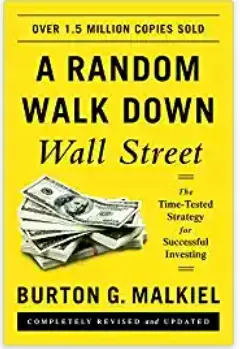
This book was written by Burton G. Malkiel in 1973 and is an established guide for all novices, freshmen, or entrepreneurs. It is written in a simple, engaging style that the readers find interesting. Students can't resist grabbing a copy of the book if the renowned economist is the one offering them some great knowledge that can help them in this game of the stock market.
Malkiel has taken the history of Wall Street and cast a speculative eye, making this book very insightful for readers. The author's approach to the efficient market hypothesis and indexing is on point. The author has argued every point with statistics and thus acknowledged the outliers in the stock market. Stock marketing is a risky and unpredictable world, and this book perfectly packs the idea of indexing in this field.
Malkiel has attempted to make this book as simple as possible so that both novice and experienced readers can easily understand it. He hasn't made the language of this book difficult or technical in the sense that it will catch the reader off guard.
The eleventh edition of this book includes new information about exchange-traded funds and investment opportunities in this developing market. It also includes a chapter on smart beta funds, the most recent investment trend.
This book is a great source of fundamentals and a requirement for anyone who wants to succeed in effective money management. It also contains information and explanations about the complicated world of derivatives.
How to avoid loss and earn consistently by Prasenjit Paul
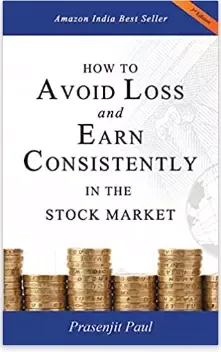
This book explains the ins and outs of Indian market mindsets, making it a useful resource for those seeking to comprehend the Indian market.
The "starter book" is written by Paul for every Indian novice investor today, and it is the best book for Indian investors so far. In this book, Paul explains to his readers a two-minute strategy for choosing and rejecting stocks.
In this book, Paul has explained that the only way to get wealthy through the stock market is by buying high-quality stocks and holding them for a long time. Paul has done his best to make this book engaging for the readers, as in this book the author has weaved his ideas perfectly into narrative form as if telling its readers a story.
If the readers carefully follow the strategy Paul outlines in this book, they can grow their wealth and become experts in this field. Paul has provided his readers with the best information and advice to help them get wealthy through the stock market by selecting high-quality stocks.
Robert J. Shiller's book Irrational Exuberance
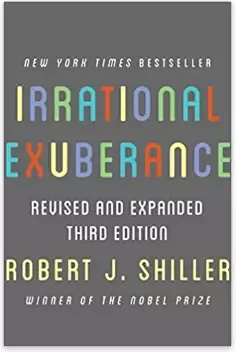
This book, written by a Nobel Prize winner and economist, reflects psychologically driven volatility and also demonstrates how recent asset markets have captured it. It elaborates on the idea of stock and bond prices along with the cost of housing during the subprime boom, and this idea is and will be part of finance for a long.
This book depicts investor life following the 2008–2009 financial crisis and also takes into account how this large stock market affects people's emotions.
The stock market that began in 1982 and picked up speed after 1995 was a bubble and wasn't based on sound economic fundamentals, according to the book's in-depth consideration of the issues and careful analysis of historical evidence.
The author has demonstrated in this book that the facts he is stating are correct, and we very well know about this fact that real estate is a bubble just like the stock market of that era, and the significant rise in such markets will eventually witness a significant decline too.
This book effectively explains the analysis and concepts found in conventional finance theory and allows readers to consider whether bubbles they perceive to be myths or real.
Students who take their economics and finance studies seriously can easily unravel this puzzle, control the markets effectively, and eventually become experts.
Jeremy J. Siegel's book Stocks for the Long Run, 5/E: The Definitive Guide to Financial Market Returns and Long-Term Investment Strategies
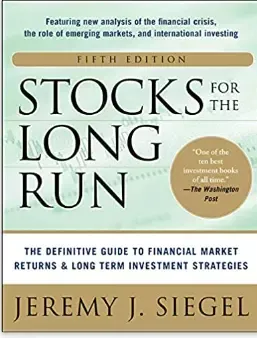
If the investment world offers investors guaranteed returns and safe investments, it will undoubtedly turn on its head. However, when Jeremy explained this in this book, the readers tended to believe him and were not at all surprised by it.
The main idea of this book is that the common stocks have also successfully given a good income, even more than the fixed income, and this has also been done with very little risk. If you can maintain a balanced portfolio, then which stocks you own are secondary to whether or not you own them. In the long run, stocks tend to prepare the reader for safer investment patterns, i.e., investing in long-term stocks is a better option.
Siegal, in this book, categorically contradicts and states that the best option for investment is the stock market rather than any other market. If the investor wants to make a good living and wants to make the most of it, he needs to maintain a good long-term portfolio.
The book by Siegel is best suited for beginners rather than experts because Siegel has thoroughly explained the stock market and how to calculate stock returns, in addition to some of the more technical aspects of stock analysis.
Siegel's book is very helpful if you're looking for a great long-term investment strategy, but you should be familiar with the stock market and investing in general.
Parag Parikh's Stocks to Riches
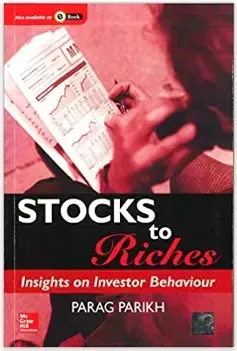
This book, which clearly explains the fundamentals of the stock market to beginners, is the best blue book for Indian investors. The author also offers advice on the mistakes you should avoid and the lessons he has to impart after years of experience.
Many investors have been looking for a book like the one written by Parag Parikh, who describes how investors should act in various scenarios and makes behavioural suggestions.
The author of this book, Parag Parikh, has explained the basics of investments and trading that investors typically tend to ignore, including trading, speculation, the sunk cost fallacy, loss aversion, and others. These changes in the behaviour and personality of investors can help them be more productive in this field and can lead to better investment decisions and trading overall.
By Peter Lynch and John Rothchild, "One Up on Wall Street: How to Use What You Already Know to Make Money in the Market."
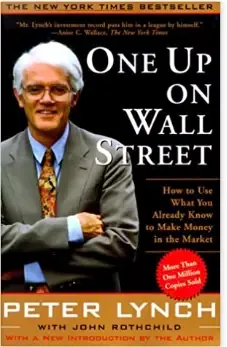
This book focuses on finding the ten-baggers, which are the stocks that increase tenfold from the original investment. A few ten baggers can transform a smart person's average portfolio into a great one. This book is a classic for investors who don't aim to be the Warren Buffet of the industry. Any average investor has plenty of advice for being financially successful.
The power of common knowledge that each person has to make the right decision and predict the stock market, thus making good money in stocks, is demonstrated in this book by Peter calling his investors and placing further faith in their capacity to do so. It also advises readers to keep their minds open in the stock market to find better opportunities.
The book is entertaining and educational, and because it is written in simple language and is full of witty comments, it compels readers to finish it as soon as possible. There is no shortcut to success, so despite how good this book is, you cannot regard it as such; instead, if you want to be successful, you must conduct adequate research.
John C. Bogle's Common Sense on Mutual Funds
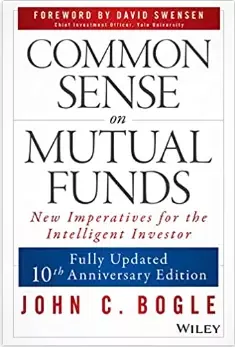
John C. Bogle needs no introduction to finance, and this book is nothing less than the timeless masterpiece he created. John Bogle has devoted many years to this field, and this book contains his experience.
Bogle offers strong investment advice to the readers and states that every investor should invest carefully, considering the conditions and evaluating the fundamentals of the mutual funds and their long-term implications. In this book, Bogle has discussed in a very straightforward manner the storm going on in the stock market, as well as its aftereffects on the same.
The first index mutual fund, which later became the largest mutual fund globally, and the mutual funds owned by its shareholders were both established by the book's author, Bogle, who is well-versed in this subject and has made significant contributions.
The book also examines costs, reveals inefficiencies, and issues a forewarning regarding the competing interests of the mutual fund industry. In this book, John Bogle offers logical solutions to the fund selection process and explains how one can find their place in this chaotic market.
This book is a comprehensive guide to help you become a better investor and establish yourself in the financial sector.
Last words
Given the fierce competition and the chaos of this market, anyone who wants to master it needs to put in a lot of practice and work. The stock market is currently the finance sector with the fastest rate of growth, and everyone is interested in learning about it and other financial fields.
This is a well-rounded list that includes books for both beginners and novices, and it contains the best books that can help you up your game in the stock market.
Also read:
The Significance of Career Counselling and the importance.
10 Best decision-making books you can read this year.
Most Popular Humanities Careers for students
Share and subscribe to the blog email.





